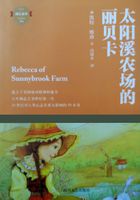is only a figure of speech.Hamilton's doctrine that the soul is present to the whole body is at any rate false: for cognitively its presence extends far beyond the body, and dynamically it does not extent beyond the brain. THE RELATIONS OF MINDS TO OTHER OBJECTS are either relations to other minds , or to material things.
The material things are either the mind's own brain , on the one hand, or anything else , on the other.The relations of a mind to its own brain are of a unique and utterly mysterious sort; we discussed them in the last two chapters, and can add nothing to that account.
The mind's relations to other objects than the brain are cognitive and emotional relations exclusively, so far as we know.It knows them, and it inwardly welcomes or rejects them, but it has no other dealings with them.When it seems to act upon them, it only does so through the intermediary of its own body, so that not it but the body is what acts on them, and the brain must first act upon the body.
The same is true when other things seem to act on it - they only act on its body, and through that on its brain. All that it can do directly is to know other things, misknow or ignore them, and to find that they interest it, in this fashion or in that.
Now the relation of knowing is the most mysterious thing in the world.If we ask how one thing can know another we are led into the heart of Erkenntnisstheorie and metaphysics.The psychologist, for his part, does not consider the matter so curiously as this.Finding a world before him which he cannot but believe that he knows, and setting himself to study his own past thoughts, or someone else's thoughts, of what he believes to be that same world; he cannot but conclude that those other thoughts know it after their fashion even as he knows it after his.Knowledge becomes for him an ultimate relation that must be admitted, whether it be explained or not, just like difference or resemblance, which no one seeks to explain.
Were our topic Absolute Mind instead of being the concrete minds of individuals dwelling in the natural world, we could not tell whether that Mind had the function of knowing or not, as knowing is commonly understood.
We might learn the complexion of its thoughts; but, as we should have no realities outside of it to compare them with, - for if we had, the Mind would not be Absolute, - we could not criticise them, and find them either right or wrong; and we should have to call them simply the thoughts, and not the knowledge , of the Absolute Mind.Finite minds, however, can be judged in a different way, because the psychologist himself can go bail for the independent reality of the objects of which they think.
He knows these to exist outside as well as inside the minds in question;
he thus knows whether the minds think and know , or only think; and though his knowledge is of course that of a fallible mortal, there is nothing in the conditions that should make it more likely to wrong in this case than in any other.
Now by what tests does the psychologist decide whether the state of mind he is studying is a bit of knowledge, or only a subjective fact not referring to anything outside itself?
He uses the tests we all practically use.If the state of mind resembles his own idea of a certain reality; or if without resembling his idea of it, it seems to imply that reality and refer to it by operating upon it through the bodily organs; or even if it resembles and operates on some other reality that implies, and leads up to, and terminates in, the first one, - in either or all of these cases the psychologist admits that the state of mind takes cognizance, directly or remotely, distinctly or vaguely, truly or falsely, of the reality's nature and position in the world.If, on the other hand, the mental state under examination neither resembles nor operates on any of the realities known to the psychologist, he calls it a subjective state pure and simple, possessed of no cognitive worth.
If, again, it resemble a reality or a set of realities as he knows them, but altogether fail to operate on them or modify their course by producing bodily motions which the psychologist sees, then the psychologist, like all of us, may be in doubt.Let the mental state, for example, occur during the sleep of its subject.Let the latter dream of the death of a certain man, and let the man simultaneously die.Is the dream a mere coincidence, or a veritable cognition of the death? Such puzzling cases are
what the Societies for 'Psychical Research' are collecting and trying to interpret in the most reasonable way.
If the dream were the only one of the kind the subject ever had in his life, if the context of the death in the dream differed in many particulars from the real death's context, and if the dream led to no action about the death, unquestionably we should all call it a strange coincidence, and naught besides.But if the death in the dream had a long context, agreeing point for point with every feature that attended the real death; if the subject were constantly having such dreams, all equally perfect, and if on awaking he had a habit of acting immediately as if they were true and so getting 'the start' of his more tardily informed neighbors, - we should probably all have to admit that he had some mysterious kind of clairvoyant power, that his dreams in an inscrutable way knew just those realities which they figured, and that the word 'coincidence' failed to touch the root of the matter.And whatever doubts any one preserved would completely vanish if it should appear that from the midst of his dream he had the power of interfering with the course of the reality, and making the events in it turn this way or that, according as he dreamed they should.
Then at least it would be certain that he and the psychologist were dealing with the same.It is by such tests as these that we are convinced that the waking minds of our fellows and our own minds know the same external world.















